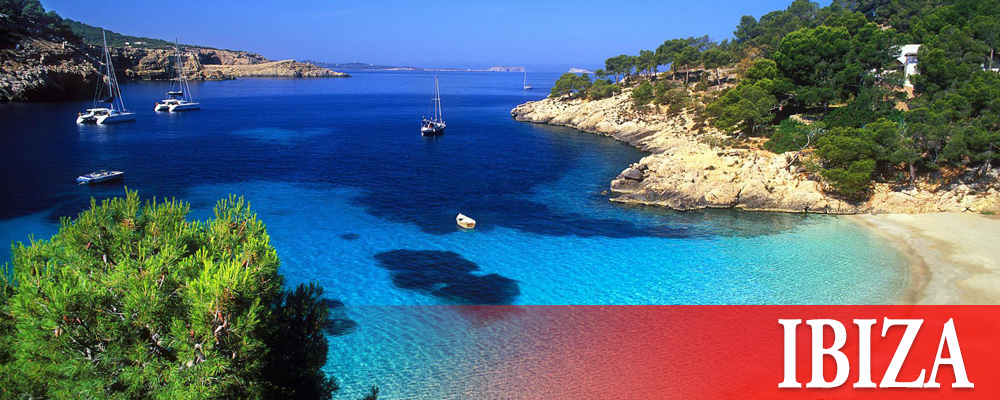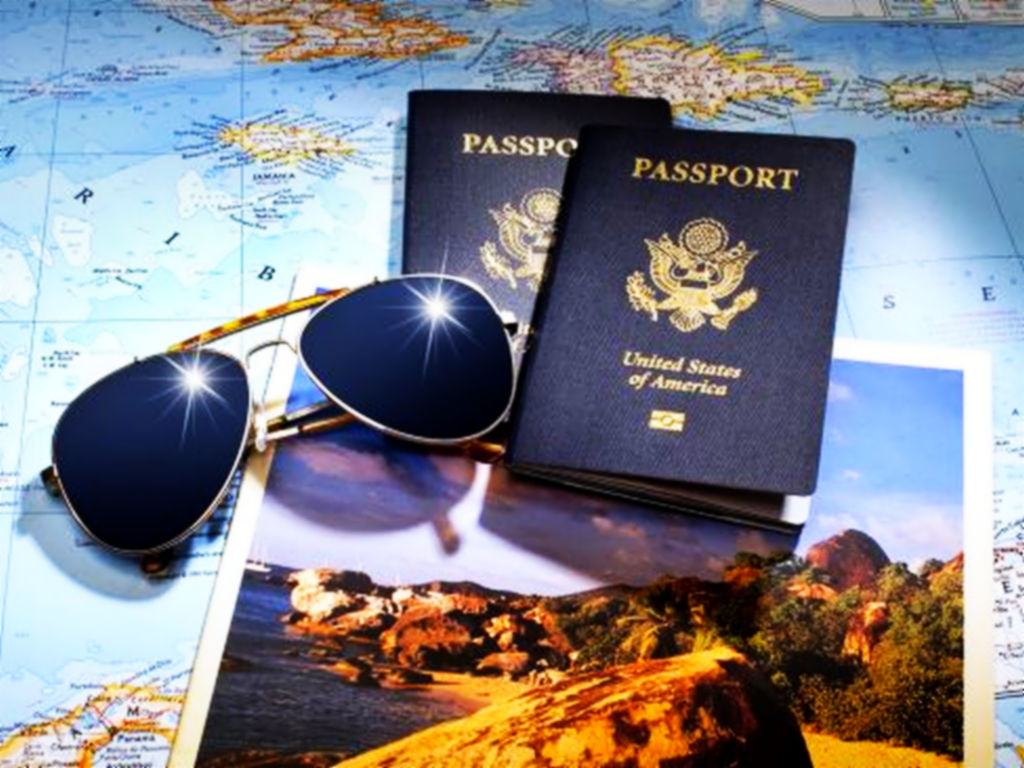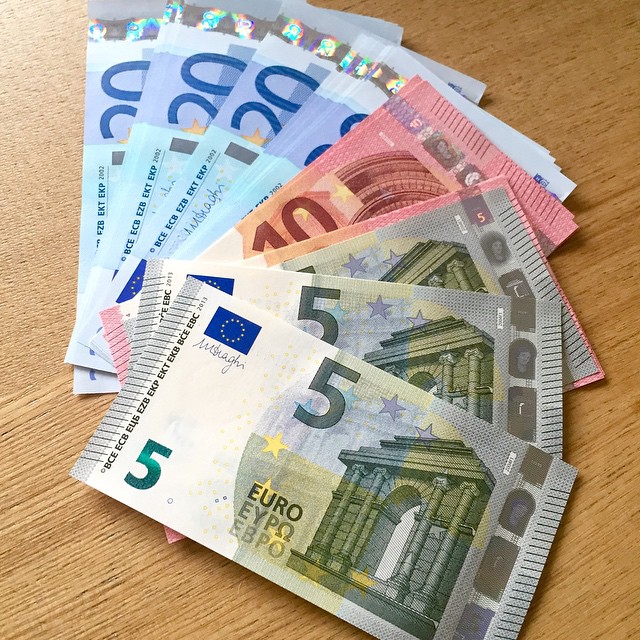Spicy Ibiza 2016

IBIZA BEFORE YOU GO
GENERAL INFORMATION
Ibiza is the third island of the Balearic archipelago in term of surface, after Mallorca and Minorca. Ibiza surface is 541 22 km² and 200 kilometers of coasts. The highest point of the island is Sa Talaia (475 meters) and around the island we can count a total of 48 islands.
The population of the island is 75 000 inhabitants. Ibiza is divided into five provinces: Eivissa the capital; Santa Eulària, Sant Antoni, Sant Josep and Sant Joan.
Well known for night activities, Ibiza is also a wonderful island, with emeralds beaches and an always blue sky (more than 300 days of sunshine per year).
Come here to discover wonderful beaches and spend unforgettable holidays.

Where do I fly into?
Ibiza International Airport (IATA Airport Code: IBZ) (ICAO Airport Code: LEIB)
07820 Ibiza
Islas Baleares, Spain
Telephone number: +34 097 180 9000
Website: http://www.ibizaairport.org/
Ibiza Weather
There are more than 300 sunny days per year in Ibiza...
The summer season and the first really warm beach days begin in May, with beautiful clear, sunny days and temperatures in the mid-twenties.
Between the months of June and September, there is very little rain fall. In August and September the temperature rises to over 30º C. With water temperatures of 25º - 27º C, beach babes are in their element!
Ibiza has a remarkably mild climate - even in winter the temperature rarely drops under 0º Celsius. From November to April the average daytime temperature is about 15º Celsius - however when the sun comes out this can rapidly climb to 25º C.
Passport and Visa Information
Visitors from other European Union member countries may enter Spain using either a passport or a national identity document.
Spain Visa and Passport Requirements
|
|
Passport required |
Return ticket required |
Visa required |
|
Australian |
Yes |
No |
No |
|
British |
Yes |
No |
No |
|
Canadian |
Yes |
No |
No |
|
Other EU |
1 |
No |
No |
|
USA |
Yes |
No |
No |
On the other hand people from other countries must have a valid passport and a visa if required.
Passports:
A passport valid for three months beyond the length of stay and issued
within the past 10 years is required by all nationals listed in the chart
above except (1) EU nationals holding a passport or national ID card which
is valid for the duration of stay.
If travelling from one border-free Schengen country to another however, EU nationals are not required to show a passport or national ID card. It is still recommended that you travel with your passport or ID card to prove your identity if necessary though. Note that Bulgaria, Croatia, Cyprus, Ireland, Romania and the UK are not part of the Schengen area, so a passport or ID card is required if travelling to/from these countries.
EU nationals are not required to possess a return ticket or show sufficient funds.
Visas:
Visas for Spain are not required by nationals of EU countries regardless of the purpose and/or length of stay; and not required by nationals of other countries referred to in the chart above for stays of up to 90 days.
Visa note:
Nationals not referred to in the chart are advised to contact the embassy to check visa requirements for Spain.
Types:
There are various types of visa available: tourist, business and transit visas. To check if you need these visas, contact your nearest Spanish Embassy.
Validity:
Schengen visa: 90 days within a six-month period.
Transit:
A transit visa will only allow entrance into the international transit area and not into Spain. You are not allowed to leave the airport.
Schengen visas:
Spain is part of the Schengen visa scheme.
Health and Safety
Ibiza has a very low crime rate, but it is always a good idea to take some basic safety measures.
Here is what we recommend:
-
Make a note of your passport number and details, as well as any traveler's checks numbers.
-
Make a note of your holiday insurance details - name of the insurance company, where to claim, who to contact etc. (keep this information separate from the original documents, so that you can produce it in the event of theft or loss).
-
To avoid your bag being snatched, walk on the inside of the pavement and hold your bag on the side of your body furthest from the kerb.
-
Travel Insurance Documents.( company name, where to claim, whom to consult etc.)
-
Never leave belongings unattended.
-
Take only what you need when going out and leave all important documents and valuables in a safety deposit box…these are offered by most hotels and apartments.
-
In the event of an emergency, phone 1 1 2 and the Balearic Emergencies Service will attend to you. This Service coordinate all calls for ambulances, fire brigade and security forces through this telephone number to provide a rapid and effective response in whatsoever emergency.
 Ibiza Currency Exchange
Ibiza Currency Exchange
Official currency is the Euro (€). Money can be changed in any bank, and at most travel agencies, major hotels and airports.
Euro (EUR; symbol €) = 100 cents. Notes are in denominations of €500, 200, 100, 50, 20, 10 and 5. Coins are in denominations of €2 and 1, and 50, 20, 10, 5, 2 and 1 cents.
BANKS
Standard banking hours are Monday to Friday from 8:30-9:00 in the morning until 2:00-2:30 in the afternoon.
Some banks also extend hours once a week and/or are open on Saturdays from 9:00-13:00.
Most banks tend to shorten their opening hours during the summer months (June-August) with no Saturday opening. Spanish banks are very firm when it comes to closing time.
American Express, Diners Club, MasterCard/Cirrus and Visa/Plus are accepted in nearly all ATMs, which are common in all banks, as do most supermarkets and small towns.
CLOTHING
May, June and September - During the evening you'll need a jersey, sweatshirt or light jacket, especially for windy days.
July and August - Now it's really hot, so you'll only have to pack beachwear like t-shirts and shorts for the day and loose fitting tops for the evening. Thin cotton trousers are popular with the locals.
October - Better to bring a couple of warm jerseys and a jacket as there can be some rainy and windy days, when the temperatures go down to 17º C.
Electricity
Electricity supply is 220 volts throughout Spain with 2 pin wall sockets. For any European countries that utilize 240 volts e.g. UK and Ireland most electrical equipment will function adequately.
If you intend to use the UK electrical plugs then you will need an electricity plug adapter that will convert the standard 3 pin socket into a two pin socket. In the US where the electricity supply is 110 volts a transformer would be required to step down the voltage to 110 volts. Damage to the electrical appliance can occur if you attempt to use a 110 volt rated electrical appliance with a 220 volt supply.
It's recommended that you purchase your electrical plug adapter from the international airport that you are flying or at the airport even if it costs a few Pounds/Euros/Dollars more.
Tipping
In Spain (Ibiza), at high end hotels you should tip. You can tip your concierge provides exceptional service, between 5 and 10 Euros. You can tip the housekeeper upfront or by leaving the tip on the bed between 2 and 5 Euros per day. Bellboys should be tipped 1 or 2 Euros per piece of luggage.
It's common to tip around 10-15% in restaurants and bars, for good service. This is in addition to any service charge that may appear on the bill. Tip in cash. In cafés, you can leave the small change behind. If the service was particularly good, leaving an extra euro or two is acceptable. Some restaurants may include a service charge, but it's not common practice in Spain. If the service is bad, don’t tip. Leave the tip on the table in the tray your bill came in, or give it directly to the waiter.
Water
Ibiza drinking water is very unpalatable and it is highly recommended to drink bottled water whilst you are there. Although you can drink tap water safely it is much preferred to have bottled water.
Language
There are two official languages: Castilian Spanish and Catalan. In the Balearic Islands, we have one of the most advanced tourist services sectors. As a result, ENGLISH and GERMAN are spoken in bars, restaurants and shops and in tourism orientated companies.
What to pack for a trip to Ibiza
-
We recommend traveling as light as possible without forgetting the items that are essential for your comfort, health, or enjoyment.
-
Bring a nice outfit or two if you are planning an evening out at an elegant restaurant.
-
A light jacket for cooler evenings and bring a warm coat if you are heading to Ibiza between October and April.
-
Select t-shirts and shorts for the warm spring, summer and fall months
-
Sun Protection
-
Toiletries
-
Bring a European electrical outlet adapter if you are bringing any small electrical appliances because the standard 220-volt American plugs do not work in Ibiza.
Things to carry on with you
-
A copy of your passport and driver’s license.
-
Money If you are going to make a purchase or go out to dinner, take more and take a credit card as well. Use the card only if you don’t have enough cash.
-
Your emergency telephone list of phone numbers from back home.
-
A business card showing the phone and address of your hotel.
- Sunscreen if you plan to be out in the sun a lot.
|
|